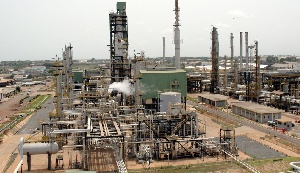The Ghana Federation of Labour has backed the call by petroleum downstream players on the Government to make the Tema Oil Refinery (TOR) a major actor in the “Gold-for-Oil’’ deal.
Mr Abraham Koomson, the Secretary General, Ghana Federation of labour (GFL), explained that TOR had completed work on the reconstruction of its crude oil furnace, which exploded in January 2017, forcing it to reduce production.
He said the only refinery in Ghana had a capacity of 45,000 barrels per stream per day.
“With proper investment and management TOR has the capacity to transform the country’s energy sector…there is absolutely no reason to exclude TOR from the government’s Gold for Oil business”.
Mr Koomson said this during the Ghana News Agency’s Tema Industrial News Hub Dialogue and appealed to the Government to consider TOR’s proposal, which would save the country some hard currencies.
He said TOR had the capacity and investment to take full control of the refinery sector, with its two plants – the Crude Distillation Unit (CDU) and the Residual Fluid Catalytic Cracker (RFCC).
“We cannot set up a company with its core business being refinery and yet go out to buy the either refined product or send crude from Ghana to other countries to refine and bring it back.”
TOR exists to refine crude oil it either acquired or for third parties to be able to serve the Ghanaian market, the sub-region, and beyond by marketing the finished products to the bulk distribution and oil marketing companies, Mr Koomson said.
He said the refinery was producing tons of crude oil and could supply other countries, which helped reduce the cost of petroleum products imported.
He said lack of political will from successive governments had been the reason the refinery had been left to deteriorate over the years.
It was high time the country prioritised processing crude locally, he said, adding that imports only contributed to high fuel prices, currency depreciation, and ultimately, economic hardship.
Business News of Saturday, 25 March 2023
Source: GNA

















